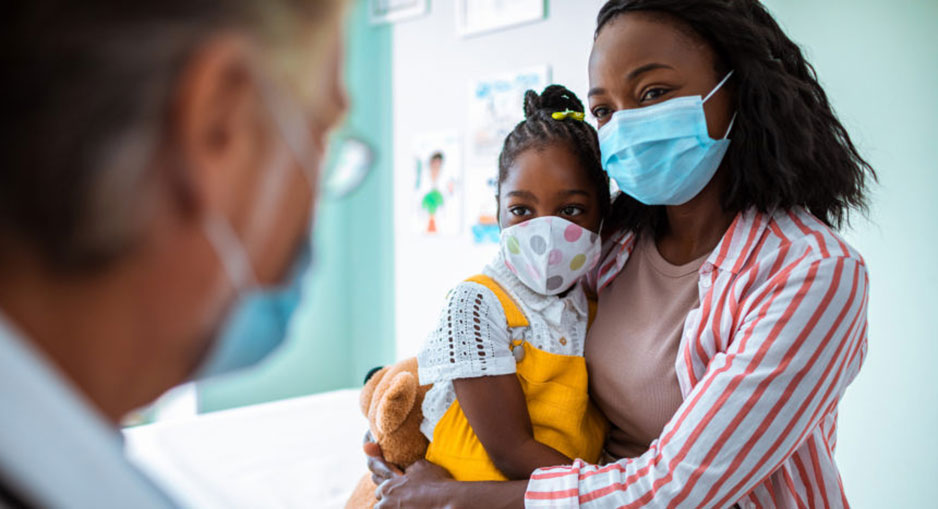Coronavirus (COVID-19): What to Do if Your Child becomes Sick

What to Do if Your Child becomes Sick
There were considerably fewer cases of coronavirus (COVID-19) among children than among adults. Generally, the virus causes milder disease in kids, though some children have become pretty ill.
Many parents wonder what to do when their child becomes ill. Here's the thing you should know.
What Are the Signs & Symptoms of Coronavirus?
COVID-19 could cause a range of symptoms, including:
Fever
Cough
Trouble breathing
Symptoms of a cold for example a sore throat, congestion, or a runny nose
Chills
Muscle pain
Headache
A loss of taste or smell
Nausea or vomiting
Diarrhea
Tiredness
Some children develop symptoms caused by inflammation at the body level, sometimes several weeks after becoming infected with the virus. This is referred to as a multisystem inflammatory syndrome in children or MIS-C. Doctors or primary care physicians are trying to find out how these symptoms are associated with coronavirus infection.
Symptoms of Multisystem Inflammatory Syndrome in Children (MIS-C) could involve:
Fever
Belly pain
Vomiting or diarrhea
A rash
Neck pain
Red eyes
Feeling very tired
Red, cracked lips
Inflamed hands or feet
Inflamed glands (lymph nodes)
Children who are very ill with the multisystem inflammatory syndrome in children (MIS-C) might have difficulty breathing, pain or pressure in the chest, bluish lips or face, confusion, or difficulty staying awake.
Most kids with the multisystem inflammatory syndrome in children (MIS-C) get better after they get special care in the hospital, sometimes in the intensive care unit (ICU).
What can I do if my child is experiencing symptoms?
Call your doctor or primary care physician if your child has a fever, cough, difficulty breathing, sore throat, belly pain, vomiting, diarrhea, rash, dizziness, or just does not feel well. If your child has been near someone with coronavirus or been in a region where lots of people have coronavirus, tell the doctor or primary care physician. Talk about whether your child requires a test for coronavirus. The doctor or primary care physician could decide whether your child:
Could be treated at home
Should come in for a visit
Could have a video or telehealth visit
In a telehealth visit, a healthcare professional could see your child on video while you stay at home. If you could, choose a telehealth provider who specializes in caring for kids. If the doctor or primary care physician thinks your child requires care right away, they will guide you on where to go. When possible, check for telehealth in your region before anyone in your family is ill.
Look for signs that your child may require more medical help. Go to the emergency room (ER) if your child:
Looks very ill to you
Has breathing problems. Look for muscles pulling in between the ribs or the nostrils coming out with each breath.
Is confused or very sleepy
Has chest pain
Has cold, sweaty, pale, or blotchy skin
Is dizzy
Has very bad belly pain
Call 911 if your child has difficulty breathing, is too out of breath to talk or walk, or becomes blue, or has fainted.
How Could I Keep My Family Safe if My Child Has Symptoms?
Keep your family home till you talk to your doctor or primary care physician. If the doctor or primary care physician thinks your child's symptoms could be COVID-19, everyone in the household must stay home till testing is done or symptoms are gone. Check the Centers for Disease Control and Prevention (CDC's) website for details.
Keep others and animals as far away from your child's home as possible.
Try to have one person only care for the ill child so others are not exposed.
If your child is over two years old and could wear a mask without finding it hard to breathe, have them wear one when the caregiver is in the room. Do not leave your young child alone while they are wearing a mask. Caregivers should also wear one if they are in the same room. For more about masks, check the Centers for Disease Control and Prevention (CDC's) guide.
If possible, have your ill child use a different bathroom from others. If that is not possible, wipe down the bathroom often.
Everyone in your family must wash their hands well and often. Wash with soap and water for at least twenty seconds, or use alcohol-based hand sanitizer.
Use everyday household cleaners or wipes to clean things that are frequently affected (door handles, light switches, toys, remote controls, phones, etc.). Do this daily.
How Do Doctors Test People for Coronavirus?
To test someone for coronavirus, doctors or primary care physicians put a Q-tip (a swab) into the nose or mouth, then send it to a laboratory. If the person coughs up mucus, doctors or primary care physicians may send that for testing too. They also could test a sample of saliva (spit). Some regions provide drive-thru testing, which lets people stay in their car during the test. At some testing sites, people could swab themselves following directions from the health care team. People also could order special kits to do the test at home.
If you think your child has symptoms of COVID-19, call your doctor or primary care physician, or local health department. They will provide you with the most recent information on the tests.
How Is Coronavirus (COVID-19) Treated?
There is no certain medicine for COVID-19. Most people who have it get better at home with plenty of fluids, rest, and comfort. Some people get very sick and require treatment in the hospital.
What Else Should I Know?
COVID-19 vaccines are now available for people sixteen years and older. Everyone must get vaccinated as soon as they are eligible. Studies are underway to see if the vaccines are safe and effective in children younger than sixteen years.
During this pandemic, keep doing those things to keep your family healthy:
Wear a mask in public and when ill.
Wash hands well and often.
Circumvent large crowds and busy places.
Circumvent public indoor spaces, particularly restaurants and bars.
Stay at least six feet away from people you do not live with.
Make sure children get all recommended vaccinations for other infections, like the flu and measles.
If you or anyone you know is suffering from the multisystem inflammatory syndrome in children (MIS-C), our expert providers at Post Covid Centers will take care of your health and help you recover.
Call 469-545-9983 to book a telehealth appointment for a home check-up.
Post Covid Syndrome vs. Fatigue
While COVID-19 is a short-lived disease in most people, others experien...
Post Covid Syndrome vs. Skin Weakness Problems
A new study illustrates that some patients with COVID-19 disease have continuous skin-associated symptoms...
RELATED BLOGS
